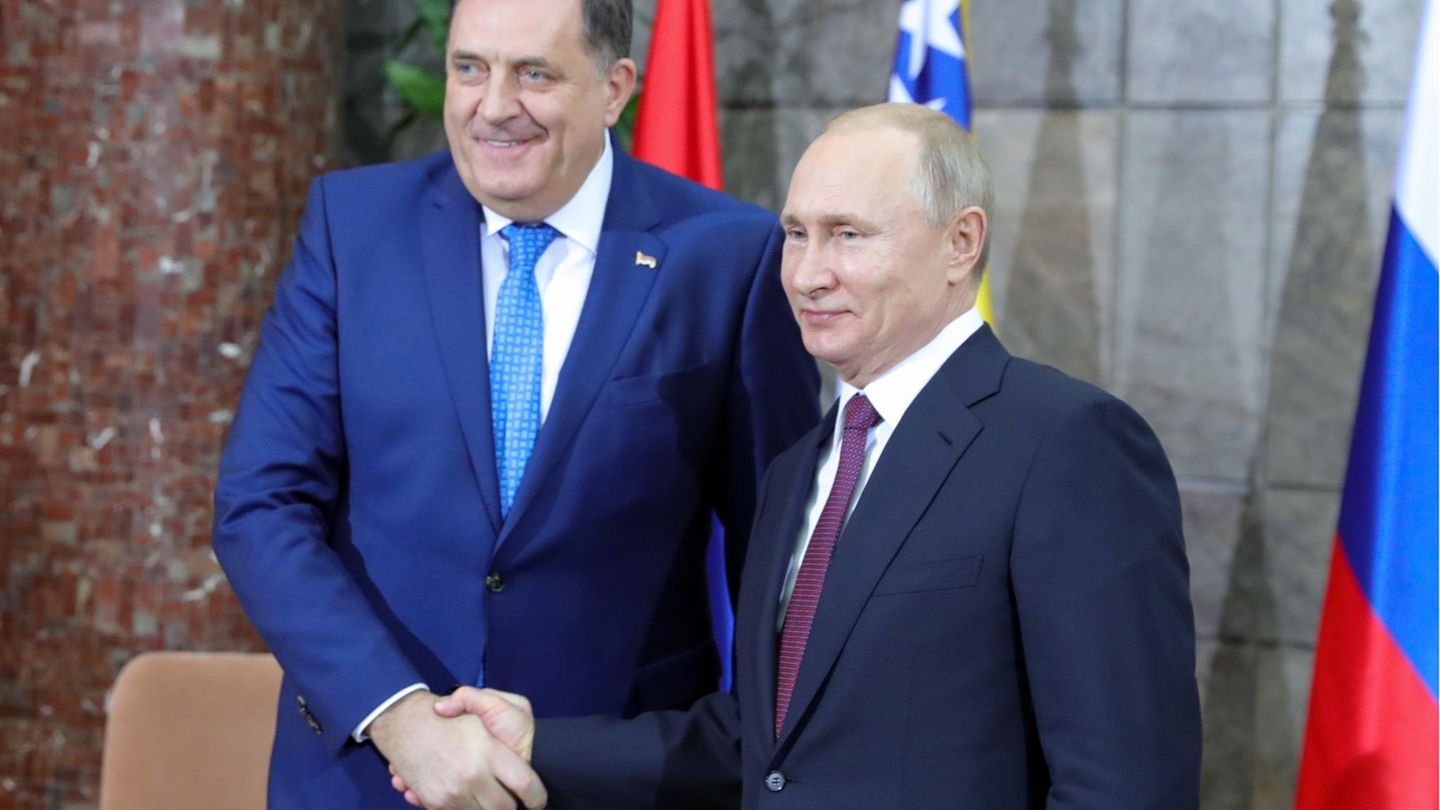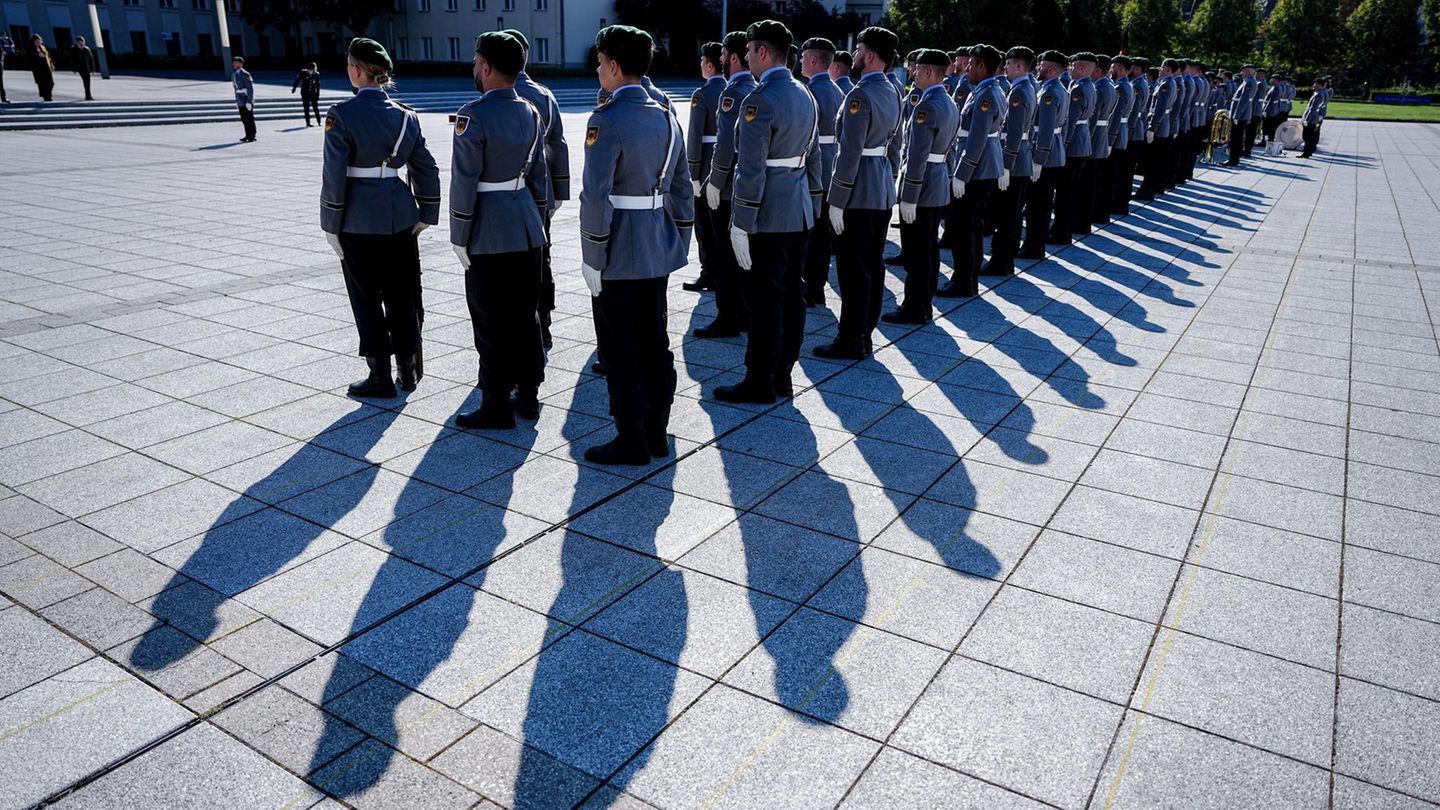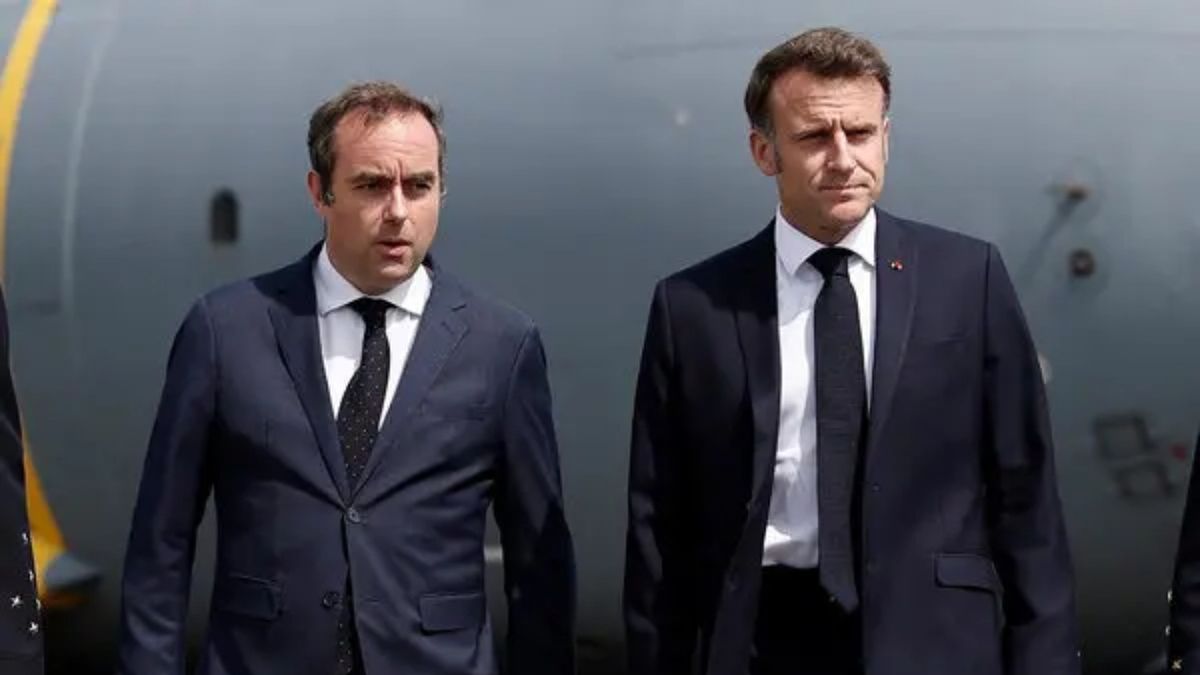Western observers warn that peace in Bosnia-Herzegovina is in danger. It is said that the proximity to Russia could lead to Putin switching to Bosnia if there is no success in Ukraine.
While Moscow is waging war in Ukraine, it is simultaneously fueling the conflict with the pro-Russian separatists in Bosnia-Herzegovina. Bosnian Serb leader Milorad Dodik makes no secret of his closeness to Kremlin chief Vladimir Putin. It is taken for granted that Moscow will support him in his separatist plans. Western observers warn that the painstakingly won peace in the Balkan country is in danger.
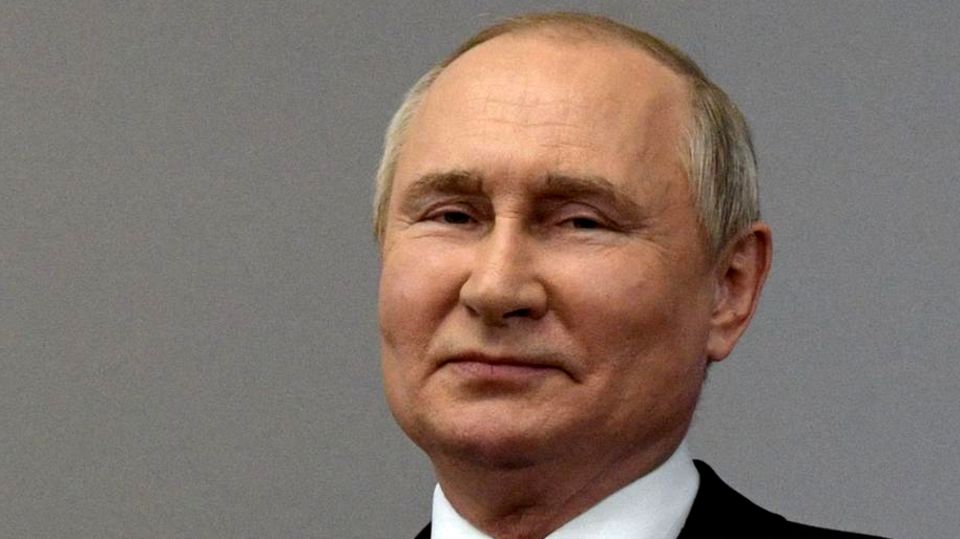
Alarm call from the USA
The latest call for alarm came from Democratic US Senator Chris Murphy. “If Putin (in Ukraine) is cornered, he will look for other places where he can win victories. And one of them could be Bosnia,” he told US broadcaster CNN, speaking of a “very worrying time for Bosnia.” In March, NATO Secretary General Jens Stoltenberg named Bosnia a possible target of “further Russian interventions”.
Around 100,000 people died in the inter-ethnic war in Bosnia from 1992 to 1995. Since then, the country has been divided into a Croatian-Muslim federation and a Serbian entity, the Republika Srpska (RS), the majority of which feel very close to “big brother” Russia. That is why Bosnia did not join Western sanctions against Russia for attacking Ukraine.
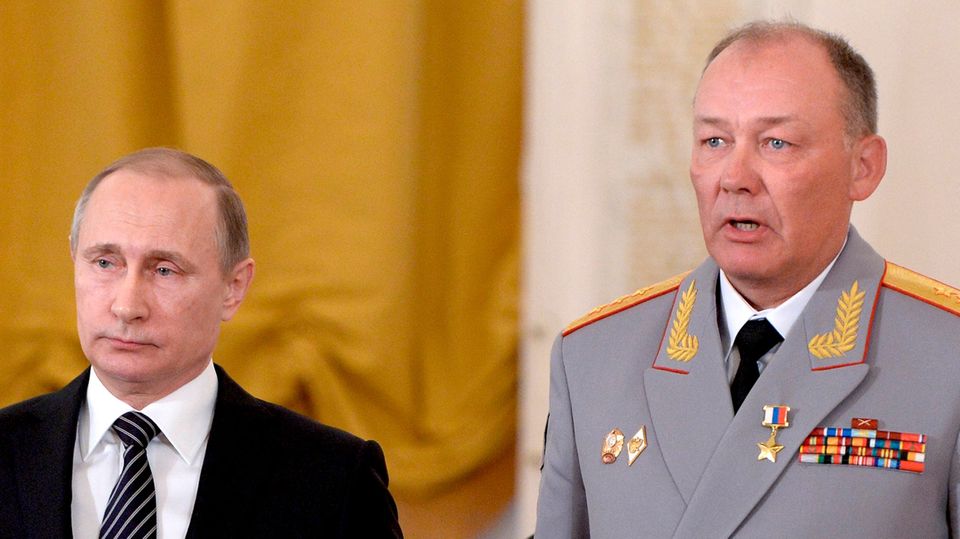
Photo: Alexei Nikolsky/AP/dpa
For centuries, Russia has maintained deep brotherly ties with the Serbs of the Balkans, due to their shared Slavic and Orthodox heritage and their alliances during the world wars. The Kremlin saw NATO’s intervention in the Balkans in the 1990s – first in Bosnia and later against Serbia during the Kosovo war – as a humiliating provocation. Since then, Moscow has been trying to increase its influence over the Bosnian Serbs.
“Russia broke with the West in Bosnia”
In statements resembling Putin’s rhetoric ahead of the attack on Ukraine, the Russian ambassador in Sarajevo warned of Moscow’s “reaction” should Bosnia join NATO. The Kremlin does not recognize the High Representative of the international community for Bosnia-Herzegovina, who monitors compliance with the peace agreement. Russia recently railed against “increasing attempts to rewrite the principles” of the deal “to the benefit of the EU and NATO and to the detriment” of the Bosnian Serbs.
“It is clear that Russia has now openly broken with the West in Bosnia,” says Florian Bieber, a Balkans expert at the University of Graz in Austria. The West’s “passiveness” has contributed to the country’s instability by allowing Serb leader Dodik to repeatedly cross red lines over the years.
Srecko Latal, editor-in-chief of the regional network for investigative journalism (BIRN), shares this assessment. “The Balkans have been destabilized mainly by the absence of the EU,” he says. This has allowed third parties like Russia, China and Turkey to fill the vacuum.
Bundeswehr is considering sending soldiers to Bosnia
But recently the West has been paying more attention to the Balkan country. “It seems to me that this Russian threat has really forced the US and EU to take a slightly more serious approach,” says Latal.
Washington imposed sanctions on Dodik in January, followed by London in April. The EU refrained from punitive measures, but almost doubled its military presence in Bosnia to around 1,100 men and women. A “precautionary measure”, as their commander, the Austrian General Anton Wessely, explained. The Foreign Ministry in Berlin is also considering sending Bundeswehr soldiers to Bosnia again. It was recently said in coalition circles that a Bundeswehr contingent could support the EU stabilization mission EUFOR Althea before the elections planned for October.
Source: Stern
David William is a talented author who has made a name for himself in the world of writing. He is a professional author who writes on a wide range of topics, from general interest to opinion news. David is currently working as a writer at 24 hours worlds where he brings his unique perspective and in-depth research to his articles, making them both informative and engaging.

